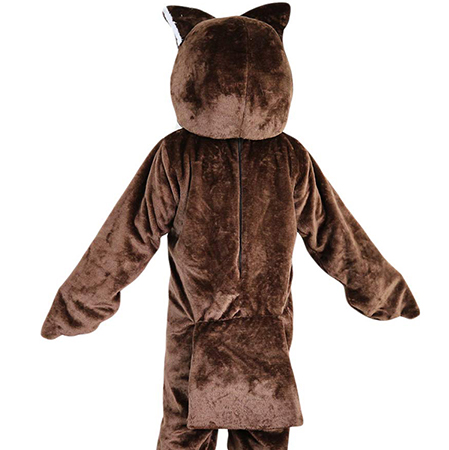Owning a custom mascot costume comes with various considerations, particularly legal ones. Understanding these intricacies ensures compliance and helps avoid potential legal pitfalls. This article delves into the essential legal aspects to consider when acquiring or owning a mascot costume.
Intellectual Property Rights
One of the foremost legal issues surrounding custom mascot costumes is intellectual property (IP) rights. These rights protect creative works such as character designs, logos, and names. Ensure that the design for the mascot costume does not infringe on existing trademarks or copyrights held by others. Conduct thorough searches and consult with an IP attorney if necessary to verify that your design is original or properly licensed.

Trademark Considerations
Trademarks are critical for brand identity. If a mascot costume features specific elements, names, or logos intended for branding purposes, it’s important to register these trademarks. This registration offers legal protection against unauthorized use and imitation. Failing to secure trademarks could lead to costly legal battles and damage to your brand’s reputation.
Licensing and Permits
Using certain characters or themes in public events often requires licenses from the original creators or owners. For instance, using popular movie, TV show, or sports team characters necessitates obtaining proper permissions. Unauthorized usage can result in significant fines and legal actions. Always verify the need for any special permits or licenses related to the mascot costume’s appearance and usage.

Safety Standards
Safety is paramount when designing and wearing a mascot costume. Compliance with safety regulations set by local authorities and industry standards is crucial. This includes ensuring the materials used do not pose fire hazards, restricting vision in a manner that compromises safety, or causing physical discomfort or injury to the wearer. Non-compliance can lead to legal liabilities and endanger performers.
Employment Laws
If employees will be donning the mascot costume, employers must adhere to relevant employment laws, including those pertaining to working conditions, hours, and health and safety. Additionally, ensure proper training on how to operate within the costume safely and effectively to mitigate any risks associated with prolonged wear.

Insurance Coverage
Securing appropriate insurance coverage is vital. This includes liability insurance to cover potential accidents or injuries that may occur while the mascot costume is in use. General liability insurance can protect against claims for bodily injury or property damage caused by the mascot during events or performances.
Privacy and Data Protection
When mascot costumes are used in public or private events, there are privacy considerations to bear in mind. Recordings, photographs, and interactions involving the mascot should comply with data protection regulations. Informed consent must be obtained for any recording or publication involving individuals, especially children.
Contractual Obligations

If the mascot costume is commissioned from a designer or supplier, clear contractual terms regarding usage rights, modifications, and liability should be established. This contract should detail who owns the intellectual property for the design and under what circumstances the costume can be used or reproduced.
International Considerations
For organizations operating across borders, different countries have varying laws regarding intellectual property, safety standards, and labor practices. Understanding and adhering to these laws is crucial to avoid legal complications in international markets.
Conclusion
Navigating the legal landscape of owning a custom mascot costume requires careful attention to intellectual property rights, safety regulations, licensing requirements, and other legal considerations. By addressing these aspects proactively, you can ensure that your investment in a mascot costume enhances rather than hinders your organization’s objectives.

